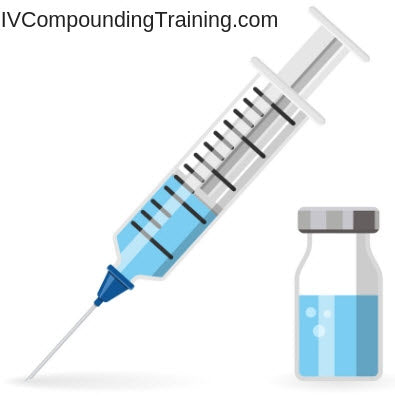Master the CSPT Exam with This Comprehensive Study Guide
PTCB CSPT Study Guide And Training Program
Are you looking to master the CSPT exam and propel your career in the healthcare industry? Look no further! The comprehensive CSPT study guide, included free when you enroll in the PTCB-approved CSPT training program or the IV certification program, is a valuable resource to help you pass the CSPT exam with confidence.
Designed specifically for aspiring pharmacy technicians, the guide provides a step-by-step approach to mastering the exam material. Whether you're a beginner or have prior knowledge, this guide will help you understand the core concepts, study efficiently, and maximize your chances of success, complemented by the comprehensive training we provide.
With a focus on both theory and practical application, this CSPT training program and study guide covers all the essential topics tested in the CSPT exam. From pharmacy calculations, USP 797 topics, and more, you'll gain a solid understanding of the key concepts and principles that you need to know.
Packed with 100 practice questions and helpful tips, this study guide will not only reinforce your knowledge but also boost your confidence for the exam. Don't leave your success to chance – start studying with this comprehensive CSPT study guide today and take your career to new heights. Earn a price credit if you decide to upgrade to the CSPT or IV certification training programs.
The CSPT exam, also known as the Compounded Sterile Preparation Technician (CSPT) exam, is a standardized test designed to assess the knowledge and skills of pharmacy technicians in sterile compounding. The PTCB administers it.
The exam evaluates a candidate's understanding of pharmacy calculations, drug classifications, medication safety, and other essential topics related to sterile compounding. By passing the CSPT exam, candidates demonstrate their competency in the field and increase their job prospects in the healthcare industry.
The CSPT exam is important for several reasons. First, it serves as a benchmark for the knowledge and skills required to work as a pharmacy technician in a sterile compounding environment, such as a hospital.
Employers often prefer candidates who have passed the CSPT exam, as it ensures a certain level of competency in the field.
Second, many states require pharmacy technicians to be certified through exams, such as the CSPT exam. Without certification, individuals may face limitations in their career advancement or job opportunities in regulated healthcare settings.
Lastly, passing the CSPT exam not only enhances your professional credibility but also opens doors to higher-paying positions and opportunities for specialization within the healthcare industry. It sets you apart from other candidates and demonstrates your commitment to excellence in your field.
Before registering for the CSPT exam, it is essential to understand the eligibility requirements established by the Pharmacy Technician Certification Board. While specific requirements may vary, there are common criteria that most candidates must meet. See more information about it here:
Credentialing Guidelines and Requirements - Guidebook (ptcb.org)
To apply to become a CSPT, a candidate must be an active PTCB CPhT and qualify under one of the following pathways:
Pathway 1: Completion of, or enrollment in, a PTCB-Recognized Education/Training Program for the CSPT Program AND one year of full-time continuous compounded sterile preparation (CSP) work experience.
Pathway 2: Three years of full-time continuous compounded sterile preparation (CSP) work experience.
More information is found here:
It is crucial to review the eligibility requirements. This ensures that you meet all the necessary prerequisites before investing time and effort into studying for the exam.
